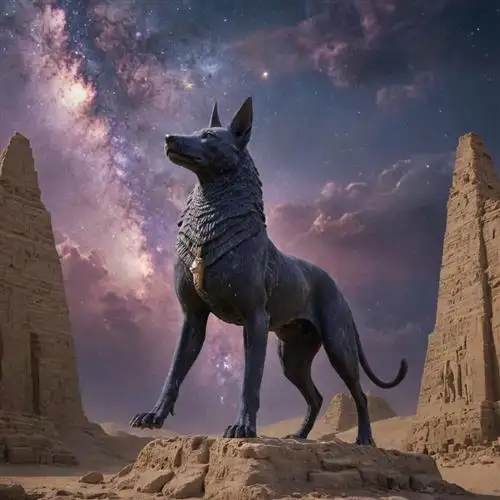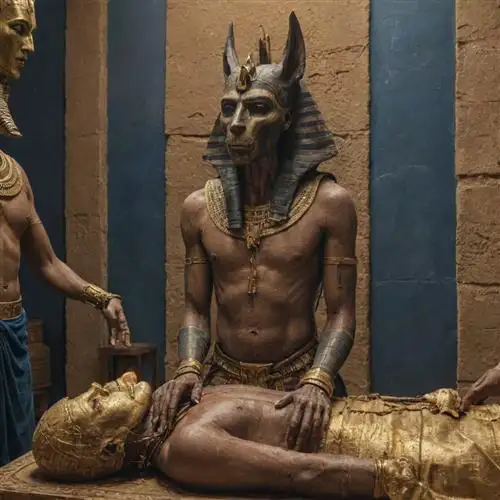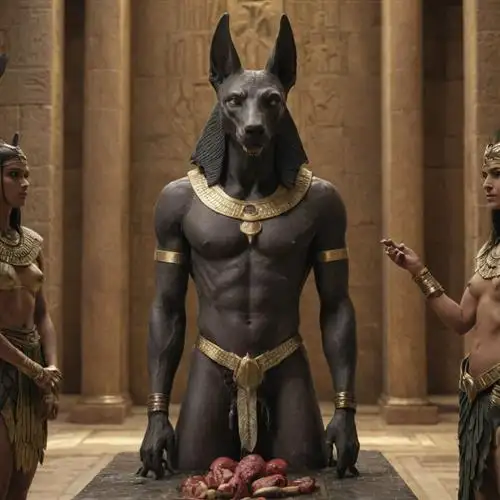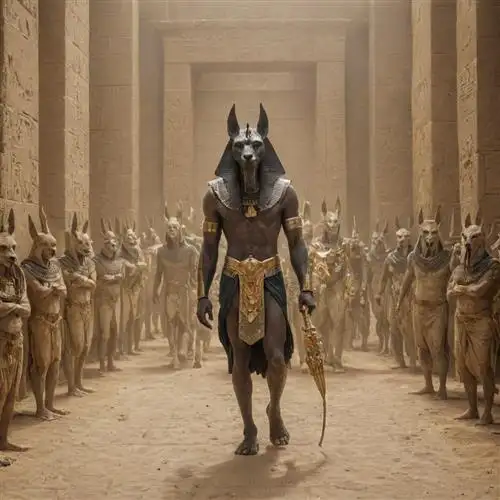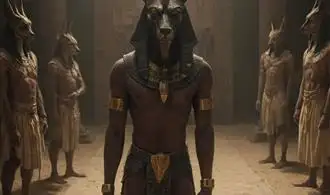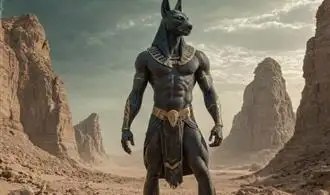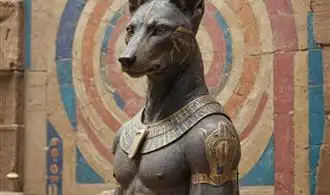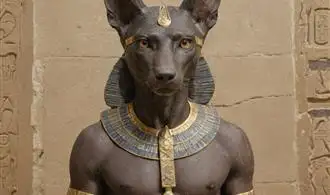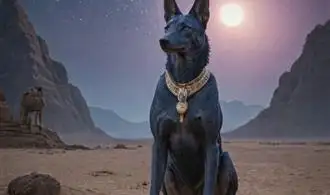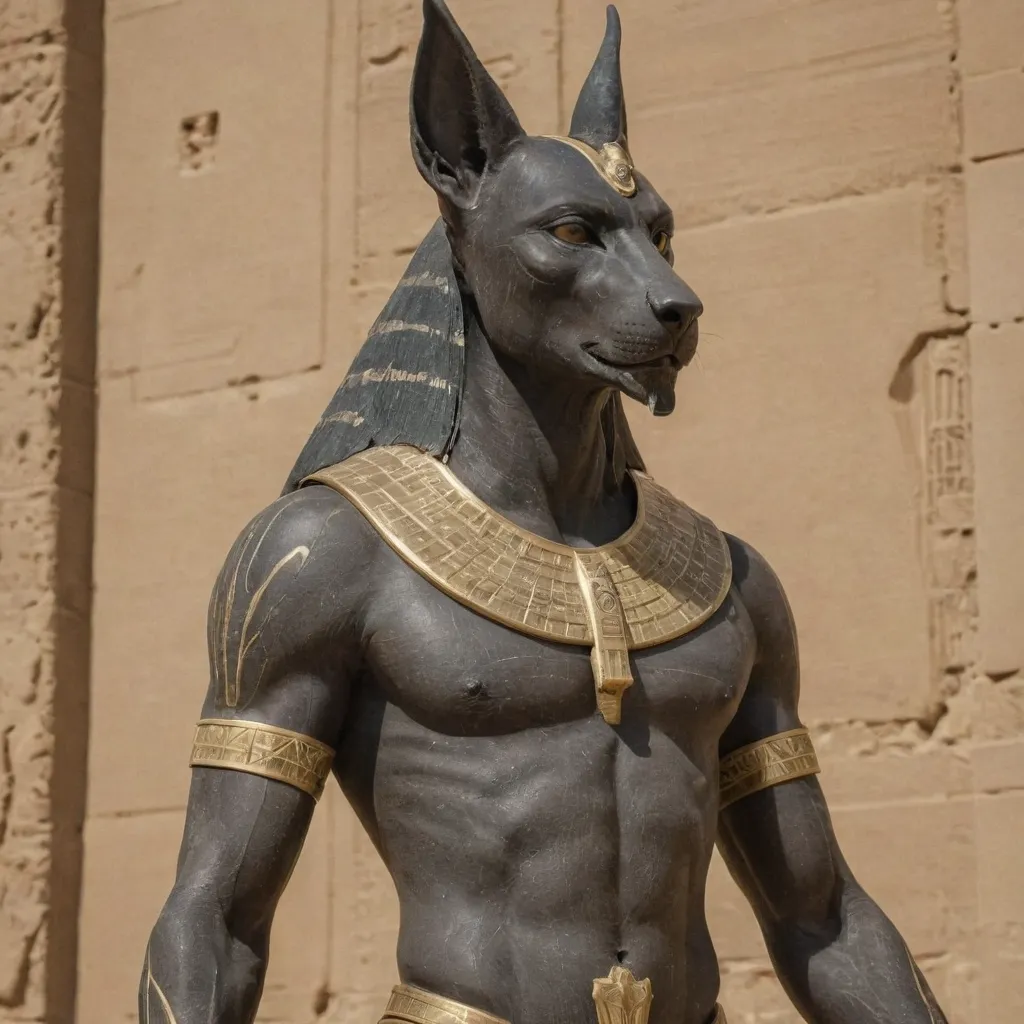
The Enigmatic Rise of Anubis in Ancient Egyptian Mythology
Anubis, the jackal-headed deity, held a pivotal role in the pantheon of ancient Egyptian gods. Often associated with death, mummification, and the afterlife, Anubis' significance extended far beyond these traditional associations. His rise to prominence in Egyptian mythology was a complex and multifaceted journey, shaped by the evolving beliefs and cultural dynamics of the ancient civilization.
At the heart of Anubis' significance lies his role as the guardian of the deceased. As the god responsible for embalming and mummification, Anubis ensured the preservation of the physical body, a crucial step in the journey towards the afterlife. This responsibility made him a central figure in the elaborate funerary rituals and practices that were integral to ancient Egyptian culture.
Beyond his role as the embalmer and protector of the dead, Anubis also held sway over the crucial process of judgement and weighing of the soul. In the famous scene of the "Weighing of the Heart," Anubis stood as the overseer, ensuring the deceased's heart was balanced against the feather of truth. This pivotal moment determined the individual's fate in the afterlife, further cementing Anubis' position as a gatekeeper to the realm of the dead.
Interestingly, the rise of Anubis' prominence can be traced to the unification of Upper and Lower Egypt. As the pantheon of Egyptian gods and goddesses evolved, Anubis emerged as a figure that bridged the divide between the northern and southern regions. His association with the jackal, a versatile and adaptable animal, allowed him to transcend geographical boundaries and become a unifying force in the Egyptian belief system.
The enigmatic nature of Anubis' origins has also contributed to his enduring mystique. While his association with the jackal is well-documented, the precise reasons behind this connection remain a subject of ongoing scholarly debate. Some theories suggest that Anubis may have originated as a local funerary deity, later assimilated into the larger Egyptian pantheon as the country's religious and political structures coalesced.
Unraveling the Mysteries of Anubis Mummification Rituals
The ancient Egyptian god Anubis played a crucial role in the intricate process of mummification, a practice that was central to the belief system of the ancient Egyptians. Anubis, often depicted with the head of a jackal, was the god associated with the protection and guidance of the dead through the afterlife. The mummification rituals overseen by Anubis were not simply practical procedures but rather deeply symbolic ceremonies that held profound spiritual significance.
At the heart of the mummification process was the belief that the preservation of the physical body was essential for the deceased to transition into the afterlife. Anubis was responsible for guiding the soul of the deceased through this delicate transformation, ensuring that the body was properly prepared and protected. The mummification rituals were a complex series of steps that involved the removal of internal organs, the desiccation of the body, and the careful wrapping of the remains in linen bandages.
One of the most intriguing aspects of the Anubis-led mummification rituals was the symbolic significance of the jackal-headed deity. The jackal was believed to be a scavenger that prowled the desert, and Anubis was associated with this creature due to the belief that he guided the souls of the dead through the dangerous and unpredictable realm of the afterlife. The jackal-headed Anubis was thus seen as a protector and guide, responsible for ensuring the safe passage of the deceased to the next world.
The role of Anubis in the mummification process was not limited to the physical preparation of the body. The deity was also believed to be responsible for the ritual purification of the deceased, a crucial step in ensuring that the soul was ready to embark on its journey to the afterlife. This purification process involved the use of sacred oils and incenses, as well as the recitation of specific spells and prayers.
Furthermore, Anubis was closely associated with the weighing of the heart ceremony, a pivotal moment in the ancient Egyptian conception of the afterlife. In this ritual, the heart of the deceased was weighed against the feather of truth, representing the moral character of the individual. Anubis was responsible for presiding over this ceremony, ensuring that the soul of the deceased was deemed worthy of eternal life in the afterlife.
Anubis and the Weighing of the Heart Ceremony
Anubis and the Weighing of the Heart Ceremony is a captivating and integral aspect of ancient Egyptian mythology, shedding light on the complex beliefs surrounding the afterlife. This ritualistic practice, deeply rooted in the worship of the jackal-headed god Anubis, held immense significance for the deceased, determining their transition into the afterlife.
At the core of this ceremony was the weighing of the heart, a symbolic act that measured the moral and spiritual worth of the individual. Anubis, the god of mummification and the afterlife, played a crucial role in this process, overseeing the weighing and ensuring the accuracy of the results.
The ceremony began with the deceased individual's heart being weighed against the feather of Ma'at, the goddess of truth, justice, and balance. This delicate balance represented the individual's moral conduct and adherence to the principles of Ma'at during their lifetime. If the heart was found to be pure and in harmony with the feather, the deceased was deemed worthy of moving on to the afterlife. However, if the heart was found to be heavier, it was deemed impure, and the individual was condemned to have their soul devoured by the monstrous creature Ammit, the "Devourer of the Dead."
The significance of the heart in this ceremony cannot be overstated. In ancient Egyptian belief, the heart was considered the center of the individual's being, housing their thoughts, emotions, and moral character. It was seen as the essence of the soul, and its weighing was a pivotal moment in determining the deceased's fate in the afterlife.
Anubis, with his distinct jackal-headed appearance, was the primary deity responsible for overseeing the weighing of the heart. His role as the god of mummification and the afterlife made him the ideal figure to preside over this crucial ceremony. Anubis was believed to possess the knowledge and authority to ensure the fairness and accuracy of the weighing, ensuring that the deceased's soul was judged fairly based on their earthly deeds.
The Weighing of the Heart ceremony was not merely a symbolic ritual but also a deeply spiritual and transformative experience for the ancient Egyptians. It represented their belief in the continuity of life beyond the physical realm and the importance of living a virtuous and balanced existence in order to achieve a peaceful and prosperous afterlife.
Anubis and the Journey to the Afterlife
Anubis, the jackal-headed deity of ancient Egyptian mythology, played a crucial role in the journey of the deceased to the afterlife. As the god of embalming and the protector of the dead, Anubis was responsible for guiding the soul through the complex and treacherous path that awaited it in the afterlife.
The Egyptian belief in the afterlife was a complex and multi-layered concept, with Anubis playing a central role in the process. Upon death, the deceased would undergo a series of rituals and preparations, all overseen by Anubis, to ensure a smooth transition to the next life.
One of the most significant responsibilities of Anubis was the mummification process. The ancient Egyptians believed that the body was a crucial vessel for the soul, and Anubis was tasked with preserving the body through the art of mummification. This process involved the removal of internal organs, the drying of the body, and the wrapping of the remains in linen. Anubis was believed to oversee this entire process, ensuring that the body was prepared for its journey to the afterlife.
But Anubis's role did not end with the mummification process. He was also responsible for weighing the heart of the deceased against the feather of Ma'at, the goddess of truth and justice, in the famous "Weighing of the Heart" ceremony. This ritual was a crucial step in the journey to the afterlife, as it determined whether the deceased had lived a righteous life and was worthy of entering the eternal realm.
If the heart was found to be heavy with sin, the deceased would be condemned to the torments of the underworld. However, if the heart was found to be light and pure, Anubis would escort the soul to the afterlife, where it would be reunited with its physical body and granted eternal life in the realm of the gods.
The role of Anubis in the journey to the afterlife was not limited to the physical and spiritual aspects of death. He was also believed to be a guide and protector for the soul, aiding it in navigating the treacherous path that lay ahead. This belief was reflected in the various funerary texts and artifacts that were buried with the deceased, which were meant to provide them with the knowledge and tools necessary to successfully navigate the afterlife.
The Enduring Influence of Anubis in Modern Times
Anubis, the ancient Egyptian god of the dead, has maintained a captivating presence in the modern world, transcending the boundaries of ancient mythology and permeating various aspects of popular culture, spirituality, and even academic discourse. Despite the passage of millennia, this enigmatic deity continues to fascinate and intrigue those seeking to unravel the mysteries of the afterlife and the complexities of the human experience.
One of the most striking manifestations of Anubis' enduring influence can be seen in the realm of popular culture. From blockbuster films that depict the Egyptian pantheon to the widespread use of Anubis' iconic jackal-headed image in graphic design, the god of the dead has become a recognizable symbol that captivates audiences worldwide. This enduring popularity is a testament to the timeless appeal of Anubis, whose role as the gatekeeper to the afterlife resonates with the universal human desire to understand the unknown.
In the realm of spirituality and esoteric practices, Anubis has also maintained a strong presence. Many modern Pagan and Wiccan traditions incorporate the worship of Anubis, often revering him as a guide and protector in the journey through the afterlife. The god's association with embalming, mummification, and the preservation of the soul has made him a pivotal figure in various spiritual and metaphysical belief systems, where his influence extends beyond the confines of ancient Egyptian mythology.
Furthermore, the scholarly study of Anubis and his role in ancient Egyptian culture has continued to evolve, with researchers and academics delving deeper into the complexities of this enigmatic deity. From the analysis of archaeological findings to the examination of Anubis' symbolic significance in funerary rites and rituals, the ongoing scholarly discourse has only served to deepen our understanding of the god's multifaceted nature and his profound impact on the ancient Egyptian worldview.

